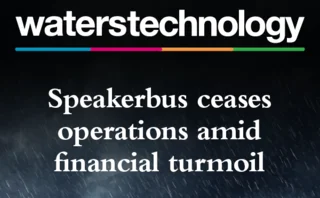JOBS Act Implications Significant, Just Not for Technology

Last month the US Securities and Exchange Commission (SEC) lifted the ban on mass advertising by hedge funds to potential investors, as was mandated in the Jumpstart Our Business Startups (JOBS) Act.
My colleague Kris Devasabai covered this story more in depth over at Hedge Funds Review, but I was waiting to write something until the technology implications became clearer. While this is a fairly major development, my mandate as a writer for WatersTechnology is to report on how these regulations will change IT strategies. Frankly, with this story, I just don't see the tech angle─at best it's minimal. The most plausible implication I heard came from Mr. Devasabai, so I'll throw it out there for your consumption, to see if this gets any wheels turning.
While the JOBS Act allows hedge funds to mass market their wares, they are still not able to mass sell, as they must continue hawking only to accredited investors. So perhaps firms will need to employ an enhanced customer-relationship management (CRM) platform, or something like it, to quickly identify and verify accredited investors.
AIFMD Questions
And perhaps tech can help solve some regulatory arbitrage hurdles. I spoke with Jeanette Turner, general counsel and managing director at Advise Technologies, this week, as she's been following not only the JOBS Act and its effects on hedge funds, but also how there's a contradiction between the JOBS Act and that of Europe's Alternative Investment Fund Managers Directive (AIFMD), which saw its first compliance deadline hit on July 22, though most firms are still likely a year away from full compliance.
Currently, non-European funds are exempt from complying with the directive until 2018. But if they start mass marketing their products to European investors, they would lose that exemption. The punishment for breaching that piece of the directive is that those non-European firms would have to immediately comply with the fairly stringent transparency reporting rules in AIFMD. Basically, if you want to market to European investors you will have to go through the headache of reporting that is likely more difficult than that of Form PF, here in the States.
As Turner notes, there's still some uncertainty as to how these two rules will be judged. Say you're speaking at a conference and there's a Greek investor in the crowd─even though you are now allowed to market your products, Greece's AIFMD statute may say it's illegal for a fund manager to market to Greek investors without transparency reporting compliance. Which jurisdiction is correct? Is it worth the possible legal headaches?
Matters get only more complicated online. A US hedge fund may want to open up its website, but does it have to put in IP-tracking software to make sure that only IP addresses from certain countries are allowed to enter the site? Or does a fund have a reasonable argument that the internet is a free marketplace and it's up to investors to know their country's laws?
After talking with numerous US-based fund managers and technologists, I would imagine that it is simply not worth the undertaking to add a heap of reporting responsibilities simply to be able to mass market.
The JOBS Act is likely to create both opportunities for hedge funds and headaches. Usually those headaches are solved with technology. In this case, I have my doubts. But maybe I'm missing something obvious, if simple. Have some thoughts on the subject? Shoot me an email (anthony.malakian@incisivemedia.com) or give me a call (646-490-3973).
(On a side note, after the USA PATRIOT Act─where USA doesn't even stand for United States of America─has there ever been a more forced acronym?)
Only users who have a paid subscription or are part of a corporate subscription are able to print or copy content.
To access these options, along with all other subscription benefits, please contact info@waterstechnology.com or view our subscription options here: https://subscriptions.waterstechnology.com/subscribe
You are currently unable to print this content. Please contact info@waterstechnology.com to find out more.
You are currently unable to copy this content. Please contact info@waterstechnology.com to find out more.
Copyright Infopro Digital Limited. All rights reserved.
As outlined in our terms and conditions, https://www.infopro-digital.com/terms-and-conditions/subscriptions/ (point 2.4), printing is limited to a single copy.
If you would like to purchase additional rights please email info@waterstechnology.com
Copyright Infopro Digital Limited. All rights reserved.
You may share this content using our article tools. As outlined in our terms and conditions, https://www.infopro-digital.com/terms-and-conditions/subscriptions/ (clause 2.4), an Authorised User may only make one copy of the materials for their own personal use. You must also comply with the restrictions in clause 2.5.
If you would like to purchase additional rights please email info@waterstechnology.com
More on Trading Tech
Bloomberg integrates AI summaries into Port
One buy-side user says that while it’s still early for agentic tools, they’re excited by what they’ve seen so far.
Larry Fink: ‘We need to be tokenizing all assets’
The asset manager is currently exploring tokenizing long-term investment products like iShares, with an eye on non-financial assets down the road.
Examining how adaptive intelligence can create resilient trading ecosystems
Researchers from IBM and Wipro explore how multi-agent LLMs and multi-modal trading agents can be used to build trading ecosystems that perform better under stress.
S&P Global partners with IBM, Eventus launches Frank AI, Tradeweb expands algo execution abilities, and more
The Waters Cooler: Arcesium makes waves with Aquata Marketplace, NYSE Cloud flows into Blue Ocean Technologies, and more in this week’s news roundup.
Robinhood looks to ‘Chaos Monkey’ for op resilience playbook
As firms look to break down silos across business divisions to bolster operational resilience, the US broker is ditching emails, while utilizing chaos engineering and automating everything in sight.
Bank of America’s GenAI plan wants to avoid ‘sins of the past’
Waters Wrap: Anthony spoke with BofA’s head of platform and head of technology to discuss how the bank is exploring new forms of AI while reducing tech debt and growing interoperability.
TMX Group buys Verity, Deutsche Börse puts market data on-chain, and more
The Waters Cooler: The Texas Stock Exchange is SEC-approved, FalconX launches 24/7 access to OTC crypto options, and the CFTC needs a chair.
WatersTechnology latest edition
Check out our latest edition, plus more than 13 years of our best content.








